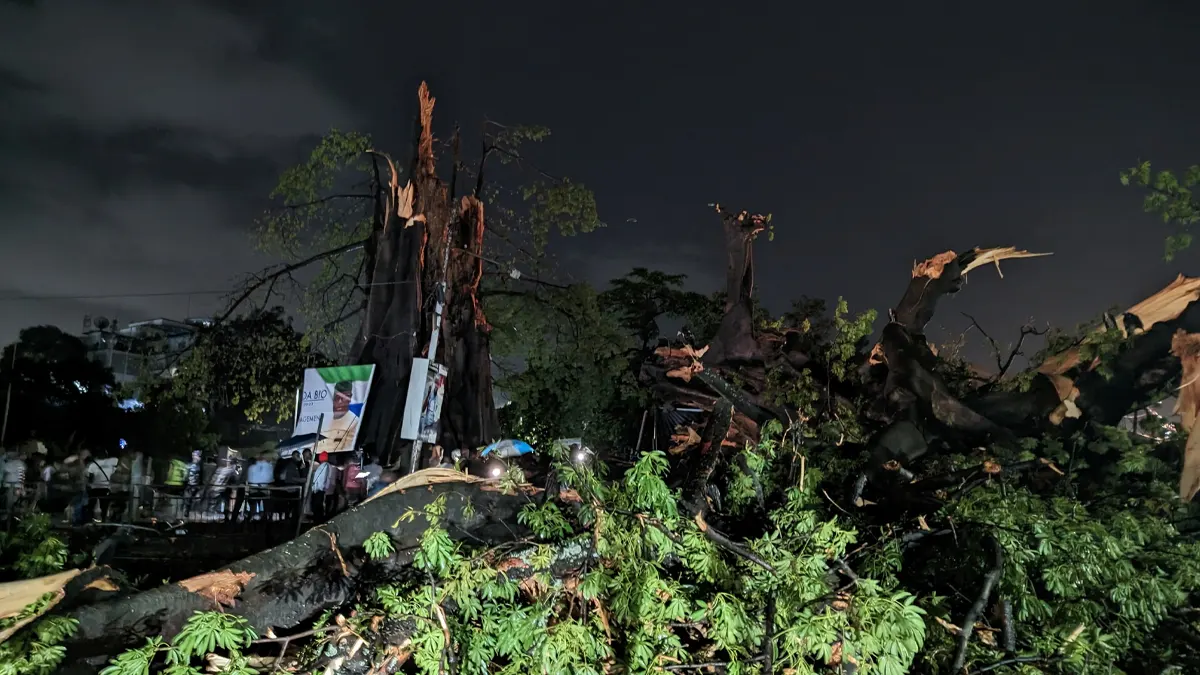Torrential rains in Sierra Leone’s capital have caused the falling of the centuries-old Cotton Tree, a national treasure whose loss has left ‘a gap’ in people’s hearts, President Julius Maada Bio has revealed.
“There is no stronger symbol of our national story than the Cotton Tree, a physical embodiment of where we come from as a country,” Bio told reporters from The Associated Press news agency on Thursday. ‘Nothing in nature lasts forever, so our challenge is to rekindle, nurture and develop that powerful African spirit it for so long represented.’
Africa Today News, New York gathered that the roughly 400-year-old tree, which had stood 70 metres (230 feet) tall and 15 metres (50 feet) wide, has been Sierra Leone’s national symbol for decades.
The Cotton Tree was an important landmark in the West African country, which was founded by formerly enslaved Africans returning from the United States. Locals say when the returnees arrived by boat in the late 1700s, they gathered under its branches to offer prayers in their new home, which they called Freetown.
Read Also: Biden Makes Case For Advanced Fighter Jets For Ukraine
The tree went on to appear on the country’s banknotes and be celebrated in children’s nursery rhymes. It was also visited by Queen Elizabeth II to mark Sierra Leone’s independence from British colonial rule in 1961.
‘It was regarded as a symbol of liberty and freedom by early settlers,” the president wrote on Twitter.
‘We have to see what we are going to do to make sure that we keep the history of this tree here,” Bio told the Reuters news agency where it once stood. “I want to have a piece of this history wherever I find myself – at the state house, the museum or city hall.”
While the tree had withstood damage throughout the years, including a lightning strike that has left it scorched, Wednesday’s storm left nothing of the tree but a stump.
Africa Today News, New York reports that Sierra Leone is among the countries most impacted by climate change. In 2017, more than 1,000 people were killed by a landslide due to heavy rains.

